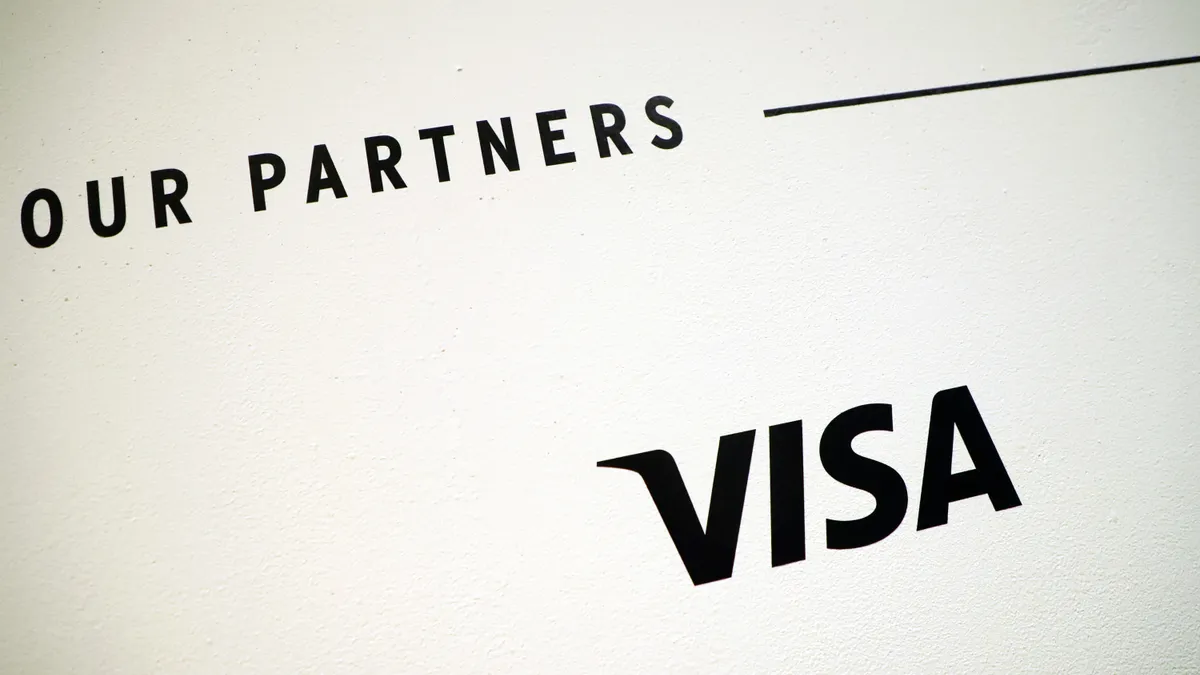Card network giant Visa is expanding an effort to get banks and fintechs in its ecosystem to work together with the goal of ultimately generating more business for all.
The company said in a press release today that it’s expanding the Fintech Partner Connect program it started in Europe last year to the U.S. and the rest of the world. The idea is to get banks that issue its cards connected with a group of fintechs vetted by Visa. Visa said those relationships can help the banks expand their digital reach without building expensive new in-house technology.
"By streamlining the discovery process, Fintech Partner Connect can help Visa’s issuing partners create digital-first experiences without the cost and complexity of building the back-end technology in-house,” Visa said in a press release today.
It’s the latest sign that large incumbent players like Visa are seeking to harness the capabilities of new technology companies often seeking to disrupt the businesses of legacy banks and financial institutions that have dominated the world’s financial systems for decades. In some cases incumbent players have been buying or investing in the new wave of fintechs, but in other cases they’ve been racing to compete with them.
Among the fintechs that Visa has designated for the circle of partners are New York-based fraud prevention company Alloy; Palo Alto, California digital identity verification company Jumio; and San Francisco-based compliance company Hummingbird. It also includes international companies such as Toronto-based accounting data company Railz and even a couple industry stalwarts such as Denver money transfer company Western Union.
Some of the fintechs are companies that Visa has invested in, including San Francisco-based GoodData, but many are not, and some, such as data collection and fraud protection company Codat, founded in London, have even received investments from Visa card rivals like American Express.
The $105 billion that flowed into fintech companies globally last year is more than the collective tech budgets of U.S. banks so it makes sense to tap that capability, Visa Global Head of Fintech Terry Angelos observed in an interview with TechCrunch regarding the expanded reach of the fintech circle. “We’re trying to bring that innovation to our clients, whether they are banks, processors or other fintechs,” he said.
The aim is ultimately to move more money through the financial system that the companies share to the benefit of them all, Angelos said. “For example, if you look at B2B spend, there’s about $120 trillion of it annually,” he told TechCrunch. “We believe about $20 trillion of that is card eligible. Today, Visa captures about $1 trillion of that. So, another $19 trillion is available for Visa to capture through our partners if our banks and fintechs can build these kinds of solutions to enable B2B payments.”
Correction: The story was updated to correct the description of Western Union.











